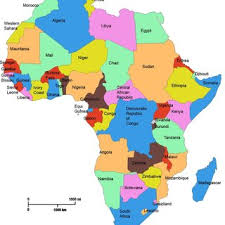African scholars and development practitioners are calling for a deliberate effort to ground Artificial Intelligence (AI) in African culture and indigenous knowledge systems, warning that failure to do so could undermine the continent’s long-term development.
This message was strongly echoed at the 11th Graduation ceremony of the African Rural University (ARU) event in Kagadi Town Council on Friday, where speakers emphasised that AI must complement, not replace, Africa’s cultural wisdom, spirituality, and community-driven problem-solving traditions.
Dr Robert Jjuuko, a lecturer at Gulu University, observed that while AI offers massive opportunities for innovation, efficiency, and improved livelihoods, it is fundamentally different from indigenous knowledge, which is relational, value-based, and grounded in human experience. He urged young professionals to take control of their present and future, noting that “they are the authors of their destiny.”
Dr Jjuuko warned that AI can become harmful if adopted without ethical grounding. He contrasted the depth of African knowledge systems, rooted in empathy, spirituality, and community wellbeing, with the cold logic of artificial systems and urged African institutions to ensure that technology is infused with cultural context.
According to him, Africa risks disaster if it embraces AI without anchoring it in indigenous knowledge, values, and local realities.
Speaking on behalf of The African Rural University Chancellor, Hon. Justice Muhanguzi, the Vice Chancellor, Dr Mwalimu Musheshe, said community-based research and culture-driven innovation remain central to sustainable transformation. He added that ARU and URDT have extended their work to 20 districts since 2021, training more than 70,000 young people in practical skills.
African Rural University Council Chair Prof. Samuel Kyamanywa noted that technological tools such as AI are already improving rural agriculture, including helping communities identify crop diseases early and enhance productivity. He commended the integration of AI at the grassroots level as a model for responsive, real-world innovation.
Several graduates who have worked with community AI tools also shared their experiences.
Grace Acio, a Bachelor of Science in Sustainable Agriculture graduate, testified that AI has helped farmers manage crops better, detect pests and diseases earlier, and boost output, bringing transformation even when extension workers are absent.
Another graduate, Atuhaire Kevina, said the exposure to technology has inspired her to pursue a master’s degree in environmental science to contribute to restoring Africa’s natural resource base.
Immaculate Nyangoma expressed optimism about applying both traditional and modern knowledge as she prepares for a role as an Epicentre Manager. She encouraged more young women to embrace institutions that blend culture and innovation.
***URN***

